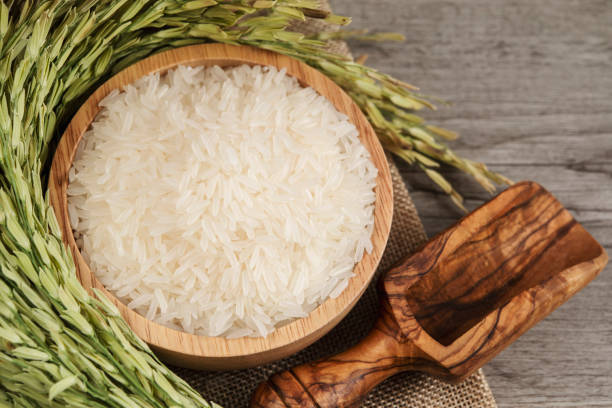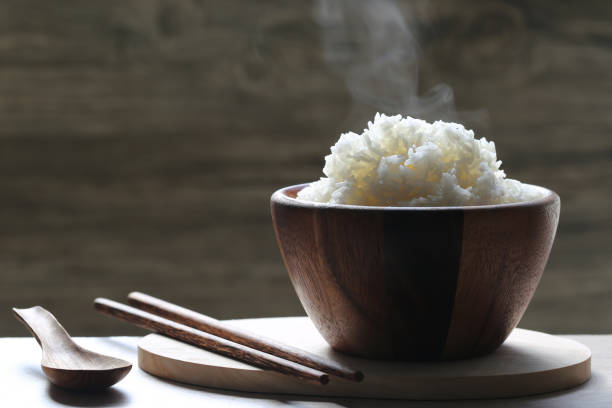Jasmine rice is a type of long grain rice that is popular in many parts of the world, especially in Southeast Asia. It is known for its soft, sticky texture and delicate, floral aroma. But what is the nutritional value of jasmine rice and is it healthy for you?
First, let’s take a look at the nutritional value of jasmine rice. One cup (around 190 grams) of cooked jasmine rice contains about 205 calories, 44 grams of carbohydrates, 4 grams of protein, and 0.4 grams of fat. It is also a good source of several essential nutrients, including manganese, selenium, and thiamin.
Jasmine rice is a good source of complex carbohydrates, which are an important source of energy for the body. Complex carbs are digested slowly, which helps to keep blood sugar levels stable and provides a sustained source of energy. This is especially important for athletes and active individuals who need a consistent supply of energy to fuel their workouts.
Jasmine rice is also a good source of manganese, a mineral that is important for bone health and metabolism. One cup of cooked jasmine rice contains around 88% of the daily recommended value of manganese. Selenium is another essential mineral found in jasmine rice that is important for immune function and thyroid health.
Thiamin, also known as vitamin B1, is another nutrient found in jasmine rice. It is important for the proper functioning of the nervous system and is essential for converting food into energy. One cup of cooked jasmine rice contains around 26% of the daily recommended value of thiamin.
So, is jasmine rice healthy for you? Overall, jasmine rice can be a healthy part of a balanced diet when consumed in moderation. It is a good source of complex carbohydrates, essential nutrients, and can be a low-fat alternative to other starchy side dishes such as potatoes or pasta.
However, it is important to note that like all types of rice, jasmine rice is relatively low in protein and fiber compared to other grains such as quinoa or oats. It is also relatively high in carbs, which may not be suitable for those following a low-carb diet.
Additionally, it is important to consider how you prepare your jasmine rice. Fried rice dishes or those made with high-fat ingredients such as coconut milk can add extra calories and unhealthy fats to your meal. Choosing to steam or boil your jasmine rice and pairing it with a variety of vegetables and lean proteins can help to balance out the nutritional value of your meal.
Overall, the nutritional value of jasmine rice can be a healthy addition to a balanced diet when consumed in moderation and prepared in a healthy way. As with any food, it is important to consider your individual nutritional needs and goals and to enjoy jasmine rice as part of a varied diet.

 Home
Home Health
Health Diet & Nutrition
Diet & Nutrition Living Well
Living Well More
More












